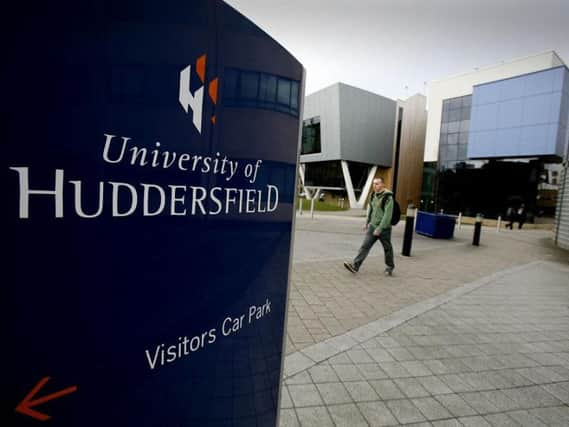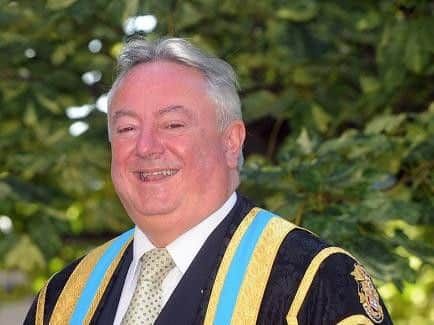The staggering rise of payments to university leaders


In a small number of cases, in which institutions did not have a change of vice-chancellor during this period, bosses have seen their pay settlements, including pension and benefits, rise by more than a third in cash terms. However, it has also emerged that one Yorkshire leader has had his salary frozen for four years at his own requested.
The analysis, by the Times Higher Education (THE) magazine, comes amid a growing row over vice-chancellors' pay, with Universities Minister Jo Johnson urging restraint and warning universities they could be hit with fines in the future if they cannot justify paying their bosses more than the Prime Minister.
Advertisement
Hide AdAdvertisement
Hide AdTHE compared vice-chancellors' pay packages in 2010/11 - the year it was decided fees would rise to a maximum of £9,000 in England - with 2015/16, the latest year for which figures are available.


The findings show that for those institutions where there was no change in vice-chancellor in either of these two years, vice-chancellors, on average, saw their total remuneration - including wages, pension and benefits - rise from nearly £242,000 in 2010/11 to just more than £278,000 in 2015/16 - a 15% rise.
Once inflation is taken into account, this is a 7% rise in real terms, the THE said.
Out of 114 universities for which there was comparable data, 44 saw the cost of their leader's office increase by at least 20% in cash terms, the analysis found, which is almost 12% in real terms.
Advertisement
Hide AdAdvertisement
Hide AdIn comparison, the magazine reported average pay for all academic staff fell by 2.8% in real terms over this five-year period, and by 3.1% for professors only - although these salary figures do not include pension contributions.


The analysis also found that out of the 57 institutions that have not seen a change in leader at all during these five years - meaning they had the same vice-chancellor in 2010/11 as in 2015/16 - eight have seen their vice-chancellor's pay packages rise by more than a third in cash terms.
Three universities saw overall remuneration rise by more than half in cash terms - Huddersfield (67% rise to £364,564 in 2015/16), Bournemouth (53% rise to £305,000) and Roehampton (52% rise to £342,000).
Huddersfield University said that their leader, Professor Bob Cryan had his salary frozen for four years from October 2008 at his own request due to the financial conditions in the sector at the time. By 2010/11 Prof Cryan's remuneration had reportedly fallen "significantly behind the rest of the sector", with many newly-appointed vice-chancellors getting greater starting salaries than that enjoyed by Prof Cryan.
Advertisement
Hide AdAdvertisement
Hide AdHuddersfield University has seen "sustained high level performance" over a period of time, and Prof Cryan's salary has increased to a level "that is commensurate with the significant transformation of the university and the associated peer recognition in terms of the many accolades received", the institution said. It added that Prof Cryan's salary is still 20% below that of the highest paid vice-chancellor.
Roehampton said that the pay of their leader, Professor Paul O'Prey is now "just over the national average for this role" and that he is one of the longest-serving and most experienced vice-chancellors in the country.
They also pointed out that the increase in his pay package is affected by "actuarial adjustments to a pension scheme made during the period".
Bournemouth told the THE that its vice-chancellor's (Professor John Vinney) increases had brought his pay package "in line with the sector average" and that the reward structure was "reflective of the positive development of the university over this period".
Advertisement
Hide AdAdvertisement
Hide AdJust last week Mr Johnson outlined plans to instruct the new regulator, the Office for Students (OfS), to take a series of steps designed to curb pay hikes, including insisting that universities justify any pay of more than £150,000 - the current salary of Theresa May.
Institutions that fail to do so could face action by the OfS, which will be able use its powers to impose penalties, such as fines.
It came in the same week that Oxford University leader, Professor Louise Richardson said it was dishonest to suggest that university bosses had used £9,000 tuition fees to boost their own pay packets.
Speaking at the Times Higher Education's World Academic Summit in London, she said: ''I think it's completely mendacious by politicians to suggest that vice-chancellors have used the £9,000 fee to enhance their own salaries.
''We know that the £9,000 fees were a substitute for the withdrawal of Government funding."